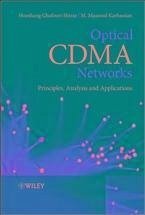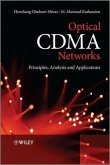This book focuses heavily on the principles, analysis and applications of code-division multiple-access (CDMA) techniques in optical communication systems and networks. In this book, the authors intimately discuss modern optical networks and their applications in current and emerging communication technologies, evaluating the quality, speed and number of supported services. In particular, principles and fundamentals of optical CDMA techniques from beginner to advanced levels are heavily covered. Furthermore, the authors concentrate on methods and techniques of various encoding and decoding schemes and their structures, as well as analysis of optical CDMA systems with various transceiver models including advanced multi-level incoherent and coherent modulations with the architecture of access/aggregation networks in mind. Moreover, authors examine intriguing topics of optical CDMA networking, compatibility with IP networks, and implementation of optical multi-rate multi-service CDMA networks. Key features: * Expanded coverage of optical CDMA networks, starts from principles and fundamentals * Comprehensive mathematical modelling and analysis from signal to system levels * Addresses the applications of modern optical networking in the current and emerging communication technologies * Greater focus on advanced optical multi-level incoherent and coherent modulations, spreading codes, and transceiver designs * Detailed hardware specifications, system-level block diagrams, and network nodes' functionalities This book appeals to researchers, practicing engineers, and advanced students. It is a practical resource for readers with an interest in optical communications and networks.
Dieser Download kann aus rechtlichen Gründen nur mit Rechnungsadresse in A, B, BG, CY, CZ, D, DK, EW, E, FIN, F, GR, HR, H, IRL, I, LT, L, LR, M, NL, PL, P, R, S, SLO, SK ausgeliefert werden.









